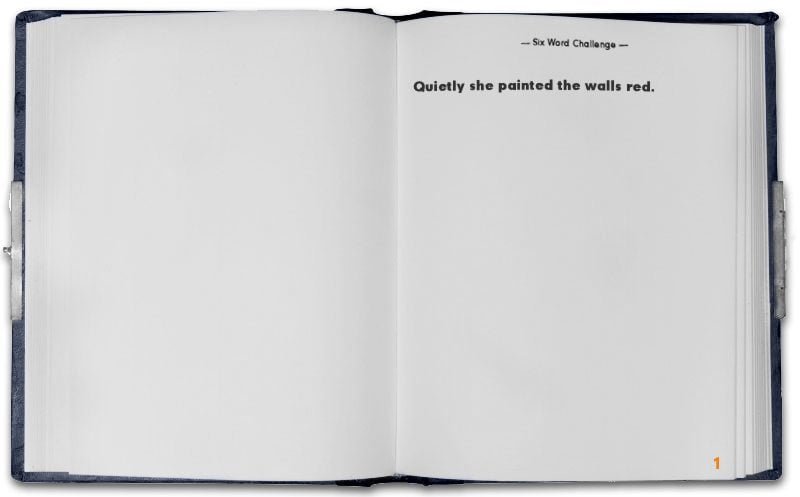Recently, I was having brunch with a former colleague – and fellow writer – when she told me about a writing contest she’d entered. The challenge was to write a story using just six words. At first, I had to ask her to repeat what she’d just said. I mean, I know I tend to get a bit long-winded when writing, but compose a complete story using just six words? I admit I was skeptical. But weeks later when she told me the results of the contest, she also shared some of the winning entries (hers was among the winners). Her story: “Quietly, she painted the walls red.” That’s when I got it.
Both the story and the concept behind it are brilliant. Why? Several reasons. First, the six words achieve the objective by telling a story. But it also gets the reader to think a little bit; it compels the reader to imagine what else could be going on with this woman and what else is happening in the story. Why was she painting? Does the red symbolize her anger? Or perhaps she’s happy, maybe expecting a baby girl. Endless possibilities. Engaging the reader is so important and this story does that. And best of all, it’s short and right to the point. Perfect for the lacking attention spans that are all too common these days. So this got me thinking, how can marketing professionals take this concept and apply it to what we do?
As one example, think about ad headlines and copy. It’s common to want to say everything about your product or service. We want to get in all the benefits and features; after all, we can’t leave out anything important. But get too wordy and you’ll lose your audience quickly. Attention spans are slim to non-existent these days, and get especially short when the person is being interrupted by some form of advertisement. Just give people a taste of what the product is all about, find that simple, unique positioning strategy (for more on this concept, see Denise’s blog post from June 22). Then leave them thinking about it and wanting to know more. At that point, they’ll seek out the company – which is really the ultimate goal of the advertiser.
Not only that, but saying too much may backfire and make you sound just like the competition. Here’s a simple example: How many prospective job-seekers craft their resumes to position themselves as having every possible skill and talent? You see the same phrases: “I’m a hard worker and always put in 100%.” Or, “I’m a team-player and work well with others.” If it were the first time those words ever appeared on a resume, it may stand out. Unfortunately, it’s common on almost every personal branding piece. I don’t mean to discourage job-seekers from including these qualities in a resume or insult anyone who has – in fact, I can bet I’ve included similar phrases in a resume at one time or another. I just feel each “seller” would be better served to key in on two or three top skills that differentiate him/her from the competitors. Now, again, think about this and how it relates back to advertising messages.
So really, saying less may end up saying more. Give it a try within your own organization. Maybe you don’t ask everyone to write a six-word story, but you somehow apply it to your company, your clients or your staff, individually. Around here, I’ve posed the challenge to a couple colleagues by asking them to sum up our agency in – you guessed it – six words. I have a hunch our art director will have an easier time with this than the writers around here…
How could your company benefit from the challenge of the six-word story? Think about it for a bit and come up with your own six-word story, or describe yourself or your company using just six words. Share the result with us!
